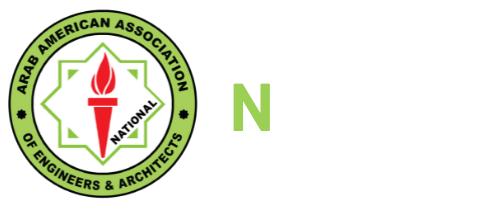Evaluation of Foreign Engineering Degrees
Evaluation of Foreign Engineering Degrees
Do you need to evaluate your degree?
If you received your bachelor in Engineering outside the U.S. or from a non-ABET accredited program within the U.S., then it is most likely you will need to evaluate your degree. ABET Accreditation must be for the specific major in the institute. Contact your state licensing board to confirm an evaluation is required.
A nationally recognized organization for evaluating the degree is the National Council of Examiners for Engineering and Surveying (NCEES). Some states may accept other organizations as well.
What is the NCEES Engineering Education Standard that is used to evaluate your credentials?
Evaluations will be conducted on the following:
- Bachelor’s degree in engineering from a non-U.S.-based program
- Non-EAC/ABET-accredited degree programs in engineering, engineering technology, related science, or mathematics only when coupled with a master’s degree or doctorate in engineering.
The following coursework is required:
- 32 college semester credit hours of higher mathematics and basic sciences
- 16 college semester credit hours in general education that complements the technical content of the curriculum
- 48 college semester credit hours of engineering science and/or engineering design courses
Note that some states have their own educational standards for engineering degrees. Once the evaluation is completed by NCEES and sent to the board, they compare it to their standards and might determine a deficit in credit hours that was not indicated by NCEES.
http://ncees.org/credentials-evaluations/ncees-engineering-education-standard/
Step by step instructions for the process:
- Complete the online NCEES Credentials Evaluation application and submit payment.
- When asked where the evaluation should be sent, select NCEES Records Program.
Supply required documents.
Completed applications are assigned to an NCEES evaluator. The evaluator will contact you via the online system to provide a list of documents required to complete your application.
All documents submitted will be examined for authenticity. Most applicants will be asked to provide, at a minimum, the following documents:
- Transcripts of all college-level coursework
- Proof of degree(s) earned
- Detailed course descriptions
Notes:
- Official transcripts must be received directly from the institution. They will not be accepted from any other source. This includes those in a sealed envelope that you may have in your possession.
- If official documents cannot be provided in English, a translation from a commercial translation company is required.
- If you have taken additional courses at other colleges, you can also submit the transcripts officially to NCEES
- A proof will be required that the language of studying was English. This statement is sometimes included on the degree itself. If not, you may be able to acquire a signed/sealed paper from your college that the courses were taught in English. Some states have additional requirements if the studying language was not English, such as a TOEFL exam with a speaking score of 26 or higher (out of 30).
- Monitor the status of your application
You can check the status of your evaluation or communicate with your evaluator at any time through your Credentials Evaluation account. In most cases, your evaluation will be completed within 15 business days after all required documents have been received and verified.
http://ncees.org/records/ncees-credentials-evaluations/pertaining-records-applicants
I got my degree evaluated. Now what?
It is important to note that NCEES does not make decisions regarding licensure. The appropriate licensing board will make any decision regarding your eligibility to sit for a licensing exam.
You can send your evaluation results to a licensing board of a specific state (or more) in order to proceed with the application for sitting for an exam, such as FE or PE. Not every state requires a degree evaluation prior to taking the exam, (i.e. you can sit for the exam before the degree evaluation), but it will be eventually required to issue the license, along with other requirements for each license (EIT, PE).
How can I contact the licensing board in my state?
Each state has its own rules and regulations. A complete list of all state boards’ contact information and their rules is provided in this link.
Final Notes:
- Some states allow applicants to sit for an exam before evaluating the degree or satisfying experience requirements, such as Wisconsin and Michigan. Other states require fulfilling all educational requirements before sitting for an exam, such as Illinois (if NCEES and/or the state board determined educational deficit in the evaluation).
- If a deficit is indicated in the evaluation, contact the state board before registering in any course to confirm that it satisfies the educational requirement (through course description and the institute offering the course)
- The rules and regulations of each state are very detailed. Make sure to thoroughly read them to avoid doing unnecessary work. They are also continuously being updated so do not solely rely on information from other people with a similar case last year. For example, in Illinois, if the bachelor’s language was not in English then a TOEFL speaking score of 26/30 is required. However, this requirement was recently waived if you have a graduate degree from the U.S.
The following 3rd Party website is a 50-state engineering compliance guide, which details the professional licensure requirements for individual engineers and their firms in each state, and addresses questions on corporate structure, ownership requirements, and educational requirements
https://www.harborcompliance.com/information/engineering-license
If you have additional information to share or a correction to make, please feel free to contact me.
Good Luck,
Fadi Alsharif
